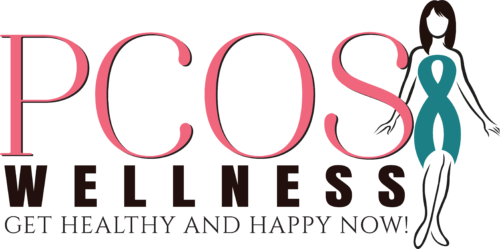
The Link Between PCOS and Lesbianism: Wait, what?!
If you’re reading this blog, you probably already know all about polycystic ovary syndrome (PCOS). (If you don’t, you can find out more by clicking here.) But what you may not know is that, if you happen to be a lesbian woman, your chances of having PCOS might be more than twice as high as your heterosexual peers!
Excuse me?!
Anne Seccombe, writing for Examiner, describes the results of a study presented back in 2004. Researchers surveyed 618 women seeking fertility treatment at a clinic in London. They found that while 14% of heterosexual-identified women in the sample had PCOS, among lesbian-identified women the prevalence of PCOS jumped to 38%.
In addition, 32% of heterosexual women had polycystic ovaries (PCO), which may or may not have been part of full-blown PCOS. However, a staggering 80% of the lesbian women in the sample had PCO.
As you are likely aware, PCO and PCOS are caused by excess androgen levels (such as testosterone). Lesbian women in this study with PCO or PCOS demonstrated higher androgen levels than heterosexual women in the study with PCO or PCOS. However, among heterosexual and lesbian women who did not have PCO or PCOS, androgen levels did not significantly differ.
Okay, that’s a lot of information to chew on. But what does it all really mean?
Well, for starters, it’s important to make it clear that this study is NOT suggesting that PCOS is caused by lesbianism, or that lesbianism is caused by PCOS. Say it with me now: correlation is not causation!
What the study is saying is that there is a link between PCOS and lesbianism. That link may well be high levels of androgens, as research has identified levels of prenatal androgen exposure to be one of the many factors which may influence sexual orientation.
Next, it’s important to be mindful of the study’s limitations and caveats. The researchers only looked at women who were already seeking treatment for infertility. It is not known whether the rate of PCOS would be as high in lesbian women who were not seeking such medical care. In addition, this is just one study and therefore its results cannot be deemed to reliably apply to all women. More research will be needed to confirm these findings.
What the study does indicate is that lesbian-identified women may be at significantly higher risk of having or developing PCO or PCOS than heterosexual women.
As Seccombe wisely notes, lesbian women have unique healthcare needs compared to heterosexual women. Polycystic ovary syndrome is the leading cause of infertility, and has been linked with increased risk for diabetes, hypertension, cardiovascular disease, and stroke. Not to mention all of the other unfortunate cosmetic side effects of PCOS caused by excess androgen levels, such as midsection weight gain, acne, excess body and facial hair growth, and even male-pattern baldness.
Lesbian women will therefore want to be especially vigilant about getting checked for PCO and PCOS, preferably by working with an endocrinologist with specialized training in the condition.
The unique healthcare needs of lesbian women extend beyond physical health and into mental health as well. For example, lesbian women must contend with rampant anti-gay societal stigma, as well as concerns about whether, when, and how to come out to others, along with many more issues. Polycystic ovary syndrome can have a severely negative impact on any woman’s sense of self-esteem, moods, and relationships, no matter her sexual orientation. For a lesbian-identified woman already dealing with judgments from society for her sexual orientation, the added stress of feeling judged for PCOS symptoms might be especially challenging.
It is important that all women dealing with PCOS seek out caring and reliable people in their lives for support, as well as work with trusted healthcare professionals. If you are struggling with PCOS, talking to a psychologist with specific training in health psychology and PCOS can be very helpful for improving your mental health and well-being.
References:
“PCOS more prevalent in lesbian women” by Anne Seccombe
http://www.examiner.com/article/pcos-more-prevalent-lesbian-women
Agrawal R, Sharma S, Bekir J, Conway G, Bailey J, Balen AH, Prelevic G., Prevalence of polycystic ovaries and polycystic ovary syndrome in lesbian women compared with heterosexual women. Fertil Steril. 2004 Nov;82(5):1352-7.
http://www.fertstert.org/article/S0015-0282(04)02227-7/fulltext
Hines, M. (2011). Prenatal endocrine influences on sexual orientation and on sexually differentiated childhood behavior. Frontiers in Neuroendocrinology,32(2), 170–182. http://doi.org/10.1016/j.yfrne.2011.02.006
Session expired
Please log in again. The login page will open in a new tab. After logging in you can close it and return to this page.
